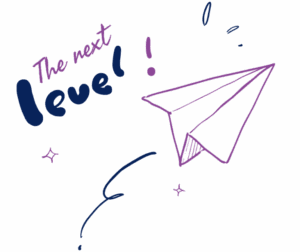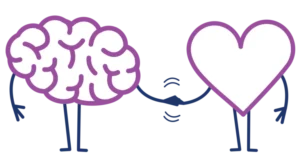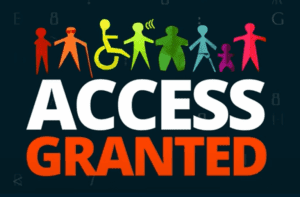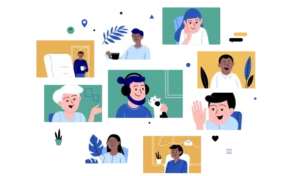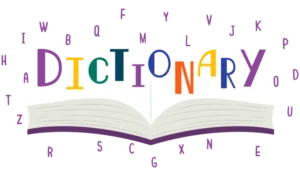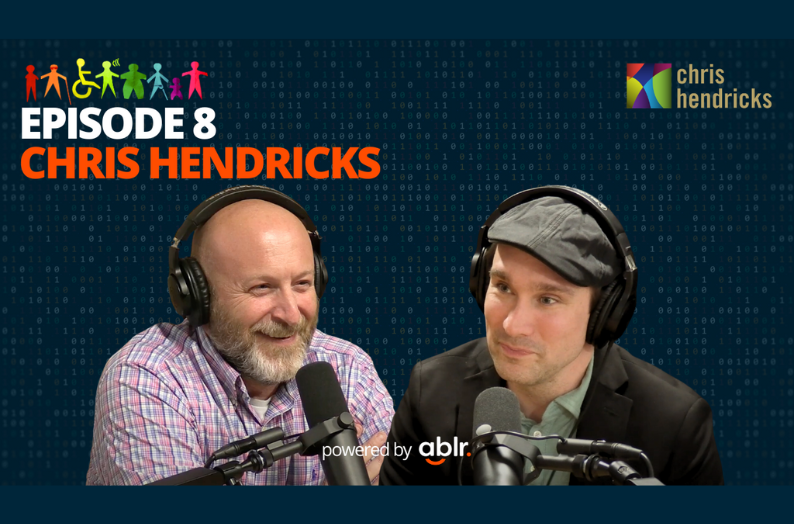Access Granted: Chris Hendricks Part 2 Transcript. Tune in wherever you listen to podcasts.
Mike: Welcome back to Access Granted, a podcast powered by Ablr. I’m your host, Mike Iannelli. Today, we’re back with Chris Hendricks, who can speak very directly about disability inclusion and accessibility as it applies to his professional career as a musician, songwriter, and advocate. This is a super important perspective, friends, and I hope you tune in and then go check out iamchrishendricks.com to support this incredible individual.
Now tell me about the industry.
Chris Hendricks: Okay.
Mike: Do you feel like that is an impediment to your growth or do, are you now thinking, wait a minute, maybe this is my time?. Maybe this is my time?
Chris Hendricks: Depends on who it is, right? Depends on the experience. I would say that whatever the reaction, it’s always extreme and that’s not necessarily a good thing.
And I’ll use extreme words to illustrate my point. I would say that oftentimes it’s automatic demonization or automatic angelization. And what I mean by that is, there’s your. As a person with a disability who performs and speaks, I’m either automatically dismissed, or I’m overly praised for the wrong reasons.
Like, people give me credit because I am a person with a disability who writes music, as opposed to being a musician who happens to have a disability. And don’t get me wrong,
Mike: I mean, if you wrote with your toes, that would be amazing.
But you’re just a guy that writes music. It doesn’t matter that you have cerebral palsy.
Chris Hendricks: And yet, and so here’s the thing. So that’s the thing. It doesn’t matter. And it does. Like so it’s those things are not mutually exclusive, right? My condition has guided my journey. And so it does matter. And so having a disability is a part of my story. And because it’s a part of my story, I’m not going to shy away from it.
I’m not going to be ashamed of it. And the fact of the matter is, is that we live in a, in sort of this bubble gum world where people are allowed to react to things however they want. And so the only choice we have as people is to allow that reaction to happen and be so grounded in ourselves that no matter what anyone says, you’re like, you’re untouchable.
You’re, you know, and so I try to be really, really stoic about these things, right? If somebody offers me an opportunity I think that that’s good news and I take it in and I appreciate it. But I don’t let it spike my adrenaline so much that I’m like, oh man this is the moment. This is it. Right? But on the other side of that, if I do a live TikTok and somebody says, throw this garbage away, it’s the worst thing I’ve ever heard.
You’re such a loser. Right? Okay well, I’m sorry to disappoint you. I’ll appease somebody else. Right? No matter what direction that you go in, you know, I know who I am as a person.
Mike: You did this keynote in Raleigh for us last year. One, it was super compelling, it touched everybody in the audience, and then you wrapped it with a song.
But tell me what your memory is of that keynote, why, if you remember it, why, is that something that you? Is it a consistent message that you do, or is it? Okay, talk a little bit about that message.
Chris Hendricks: I am, I am so wrapped up in this idea that persons with disabilities have value, not in spite of their condition, but because of it.
I think that persons with conditions, whether seen or unseen. Like okay, so let me take a step back. Obviously, as human beings, we’re inherently valuable. You have value because you exist. There is a one in a trillion chance that you shouldn’t exist. And here you are, you exist, whether you have a disability or not.
Right? Let’s set that aside. Now you’re born into a world where you have a disability, whether it’s seen or unseen, you immediately have an advantage over your able bodied counterparts. You are forced to adapt in a world that is not necessarily set up for you or ready for you, right? Yeah, there are disadvantages to that, but because we are forced to adapt, we become adaptable people.
Throw us into any situation and we can adapt to that situation with that, with the right resources, right? I’m so attached to the idea that persons with disabilities are largely loyal. You can look at the statistics, look at the department of labor. Persons with disabilities are the most loyal employees.
If you give us a chance to, if you hire us, we’re not going anywhere. We’re not leaving. And then for me, we talked about this a little bit earlier. But like, I’m blessed to have my scars on the outside. Okay, other people can see them right off the bat. There’s nothing I can do about that. Okay well, how is that an advantage?
Well, that means that if I go to a networking event, I mean networking event or not, if I go into a room, eyes are drawn to me. If eyes are drawn to me, I have a chance to change people. I have a chance to affect people. I have a chance to have a conversation that’s going to make an impact and create a relationship.
So many people would kill for that. And as a person with a condition, I call it a condition because in my opinion, like the operative word is disability I guess. But it implies that I’m missing something. And yeah, I’ve had challenges. I’m not trying to erase this reality from my reality. But the fact of the matter is, is that I see my condition as an advantage.
If I have a condition and I have to wear my scars on the outside, that’s going to create immediate vulnerability between me and whoever chooses that they want to engage with me. So first of all, right off the bat, it’s an automatic conversation starter. I don’t have to spin through, spin my wheels, praying that something comes up in my mind that I have to use to relate to you.
I’m automatically vulnerable. That means that we are set up to connect and we are set up to have a relationship. I challenge any company out there who needs sales, which is every company. If you’re not hiring persons with conditions that can communicate, you are missing out on a bottom line that is staggering.
Step up, y’all. Seriously.
Mike: Love that. Damn.
Chris Hendricks: And whether you can.
Mike: Another mic drop brother.
Chris Hendricks: Well, and here’s the thing, right? Whether, like, we all have different ways of communicating, right? I cannot speak for every person with every condition out there. But what I can say is that in my experience, every person with a condition, regardless of the condition, whether it’s internal or external, there is a level of empathy that blows this world out of the water. And I mean like combined empathy. I mean empathy for that person who’s experiencing that thing and going through that thing, and that person’s ability to feel empathy and just the sheer desire to connect.
Mike: Alright, I’m going to say a couple of words and I want you to think about just list a couple off real quick.
Loyalty, problem solving, adaptability, commitment, motivation, gratitude. What do those words mean to you?
Chris Hendricks: Superman.
It’s a well rounded human being.
Mike: So those are words that we use when we talk about our workforce development program. And you nailed it when you talk about employment opportunities. It’s that mindset shift. And you think about environments today with loyalty, motivation, commitment,
caring, adaptability, problem solving. Like what other, what other things are there?
Chris Hendricks: Not just made for it, born for it.
Mike: Born for it. And then you eliminate the barriers of transportation and technology. So what are we talking about when we have individuals that carry these characteristics and these traits that are on the unemployment sidelines?
What are companies missing by not opening up their their mindset to the possibility of incredibleness?
Chris Hendricks: Well, here’s here’s what I’ll say. Here’s what I’ll say to that and again, disability is so diverse. We are the most diverse, diverse group. Out of all the groups, out of all the subgroups.
Mike: It covers the entire spectrum.
Chris Hendricks: It covers the entire spectrum. And by the way, if you’re not disabled, we are a preview of coming attractions.
Mike: That’s right.
Chris Hendricks: Cause you’re gonna join us.
Mike: Cause we’re gonna be there.
Chris Hendricks: You’re joining our team. Right? It’s coming. Right? So keep those two things in mind. But in terms of what are they missing?
Well, there is this thing in the world of disability that we call dignity of risk. I don’t know if you’re familiar with dignity of risk, but dignity of risk essentially is this idea that persons with conditions are capable. They’re capable with the right resources and the right assistance, regardless of their cognitive ability or their physical ability or the challenges that they’re facing mentally. At some task, in some way, there is a gift there.
There is a gift somewhere for every single human being. Again, not in spite of, but because of their disability.
And the caregivers of persons with disabilities, depending on how severe, , or where on the spectrum person with a condition exists, have a hard time offering that individual dignity of risk. Just like any parent.
Let’s say I’m a, I’m a teenager and you’re my dad. And it’s that time where I’m starting to get out into the world and start dating. There’s this, like, energy inside of you that says, oh I’m like, I’m excited for this, but I’m terrified. How do I protect him? How do I protect him from the damage that’s definitely going to happen?
Cause let’s be real, the odds of someone meeting their, their true love their first Tinder date is like 0.0001%, right? Okay, well magnify that about 10,000 times for a person with a disability that’s just trying to figure out how to exist in the world. And my hats off to their families who are trying to figure out how they’re going to exist in the world. In a way that, like. But the number one thing that caregivers are looking for is safety.
And we try to teach caregivers, or I shouldn’t say we, I as a self advocate, try to teach, parents and caregivers to let go of the string a little bit, as best you can every day. Offer more and more freedom and more and more interdependence, not independence, interdependence to persons with conditions.
And by the way, there’s no such thing as independence. If you call yourself an independent individual, you are lying. You live in a world of interdependence. There are people and things that you depend on to exist. You’re not waking up every day in a dark room alone, and then you have to do absolutely everything yourself.
That’s not how a society works. So every single person in this world is interdependent. So that’s something that we just happen to be interdependent extra.
Mike: So folks with. Parents with children or family members with disabilities. I mean it’s, I just remember having children and when I found out that somebody was picking on someone in my family because of a judgment or criticism, it you know, it lights you up inside.
And you know, truthfully rage is the way I can explain it. But now all of a sudden you’ve got another slice in there. And then it’s like, boy, there’s a protection. And I’ve been exposed to this.
Chris Hendricks: Absolutely.
Mike: Where the parents are overly protective. Which I totally, good lord, I get it. I totally, I mean I was, I get it.
But you’re saying is, let go a little bit. Because the part of inclusion that’s beautiful is they need and deserve the opportunity to live just like we all do and experience all the shit that comes along with it.
Chris Hendricks: Absolutely.
Mike: And so if you guard them and keep them from the shit, you’re not giving them a gift,
you’re disabling them.
Chris Hendricks: Yeah, you’re disabling them by enabling them.
Mike: Yes, exactly. So well said. So, you’re saying, so this is one of the things I want to, because I want to take on this one and I have a couple more. But like the reality is we all struggle. But what advice as a leader, as an advocate, as an artist, that you can provide for some young folks that may hear this and say, hey I’m struggling. I want to do something amazing with my life.
Chris Hendricks: The first one’s for everyone. Ladies and gentlemen, if you are a human being, your superpower is communication. We have forgotten that. Technology is valuable, and social media is so, so important, but there’s been some side effects, right? You can use social media to reach the world. But when social media was created, there was this underlying belief that that we as human beings knew how to communicate.
And we don’t. That’s the fact of the matter is that we have no idea how to communicate with each other. And social media has exacerbated that very problem. And there’s been so many studies that show this. And so while social media and media is such a powerful tool. If you are a human being out there, get out into the world, go somewhere with other people, and find a way to bump into them, and force yourself to have an actual conversation. Develop conversation and connection skills.
Mike: So give me one for, you know, young kid right now, in elementary school, middle school, high school, in a wheelchair, has a physical disability, somewhere, different than others, noticeably different, and struggling with the world today of people that are judging and critical and making them feel less than that they don’t belong.
And coming from someone who said, hey this is a superpower for me.
Chris Hendricks: This applies, by the way to, you might not think it does, but this applies to people with both visible and invisible disabilities. What I’m about to say, right?
Mike: Thank you for that clarification.
Chris Hendricks: Depending on how young you are, you may not think that standing out is a superpower now, but my God I swear it is.
Give it time. And it also is all about your perspective. So I chose, I made a decision that, okay this is my reality. I’m, there’s nothing I can do about, like, I can’t hide from my condition. Eyes are going to be drawn to me. How can I use this to my advantage? Your life gets better based on the questions you ask yourself.
So if you, if you’re young and you have a condition visible or invisible, start asking yourself better questions. If you’re sitting there staring in a mirror, and you’re asking questions like, why was I born this way? And not just the question, but the tone.
Mike: Mm hmm.
Chris Hendricks: Right? Your physiology. How are you asking yourself that question?
What if you simply changed the tone of that question? What if instead of saying, Where am I going? Why was I born this way? What if you said, why was I born this way? What if you put some spice behind it? Like, but some positive spice. Don’t be hating on yourself while looking in the mirror. Like really think about it.
Why was I born this way at this time in this environment? And then think about it. Man, we are such energetic beings. You ask yourself the right question, you will be given the right answer. Here’s a better question. How can I have fun with this? You know what I used to say on the dating apps? I used to say, my name is Chris Hendricks.
I’m a singer songwriter. I travel around. I’m a great salesperson. And also I walk like a zombie. Hang out, I’ll pay for your dinner. Right? And because I said I walk like a zombie, right. It created curiosity. It’s a creative way to spark curiosity. So I got more dates because people were like, he walks like a zombie,
what does that mean? Right? And it, I’m just like look, I’m not saying I’m Casanova. But I’m going to tell you that it worked, right? How can you have fun with who you are as a person? Ask yourself that question over and over again, and I guarantee you buried within that personal conversation you have with yourself, the answer is there.
Mike: Where does Chris Hendricks go from here? And I feel like I know the answer to this, but go ahead and tell me where do you go from here my brother?
Chris Hendricks: Here’s the thing man. I think if you’re strong enough and smart enough to get ahead of that game and understand intimacy and community because there’s people that think they have community, but they don’t. It’s not real community because they’re not really communicating, all right.
I am a performer at, in my heart of hearts, I’m a performer, I’m a speaker. I will play anywhere, I will perform anywhere, I will speak anywhere. But my current mission is to really pursue these, house concerts. If you have a house, and you have friends, I want to play at your house. And I want to figure it out.
Like, creating those intimate environments that’s this beautiful marriage between the power, the explosive power of music and the side effects of being right there and being present. As opposed to being, you know, having this like massive crowd and getting to share your vulnerable stories along with the music and where the music comes from.
That’s, that’s how you build communities. So that’s my dream. So nowadays I’m playing one house concert a month. I play bars every once in a while, but really rarely every once in a while.
Mike: How do you get back to where you want to be?
Chris Hendricks: I get back to where I want to be when corporations, companies hear this message and want to get behind me.
They want to, you know, they want to hire me to speak. They want to hire me to perform at their next event. They want to sponsor a house concert so that people don’t have to worry about tickets and they can just show up and have an experience.
Mike: So iamchrishendricks.com I can go there. I can book you to speak, I can book you to come to the house and sing, I can book you, I can introduce you to people that way and then social media.
Give me a couple other like tags.
Chris Hendricks: Every single social media platform I’m just @iamchrishendricks I do believe in the power of the I am and there’s just something about that energy.
Mike: Any limitations that you have for work?
Chris Hendricks: Nope.
Mike: Okay, so technically what I think I’m hearing is that you’re available to sing, you’re available to speak, you are excited to sing, and excited to speak, and excited to create intimate environments for people that can help connect, and communicate, and share, and remember.
Chris Hendricks: And give back.
Mike: And give back.
Chris Hendricks: Every single house concert moving forward, what we’re trying to do is associate it with a non profit.
Mike: Cause, yeah I love that.
Chris Hendricks: Thank you.
Mike: Alright, so I think we’re getting close to wrapping on this. Will you play Affliction?
Chris Hendricks: Yeah, I would love to.
Mike: Is that the one you would like to play?
Chris Hendricks: That is the one I want to play.
Mike: Alright, I want to hear this. Guys, ladies and gentlemen, in the studio at BURT Studios, we’ve got Chris Hendricks.
Chris Hendricks: One day long ago, mama picked me up me up from school. She said, Son won’t you tell me what’s bothering you? I said, no Mama, no. Won’t you leave me be? She said, Son you know better than to lie to me. Didn’t they hurt you, boy? No, no, no, no. Didn’t they curse you boy? No, no, no, no. And then they mock you boy. No, no, no, no. What’s their problem?
Well mom it’s gotta be my affliction. Let’s rewind the clock maybe eight months ago. When the tracks of my tears were begging for snow. My angel, oh my angel, what are you doing this for? She said, I don’t know baby, I don’t love you no more. It’s the way you dress. It’s the way you dance. It’s the way you move. Oh, wow. Why does it matter so much?
Oh, yeah. It’s gotta be my affliction.
You told me must stop this message, son. I said, didn’t you hear Sammy say change is going to come. Now I’ll be the message my people need you see. And I’ll give my broken brothers sanctuary.
They’ll hurt you boy I know, I know, they’ll condemn you boy, I know, I know, they may kill you boy, I know, I know. But I got a beating though.
Whoa Lord, I’ve got to beat to my affliction.
Mike: Damn, brother.
Chris Hendricks: Bro.
Mike: Absolute freaking honor, my friend. I love you. I appreciate you. I got my chills again. I remember that. Thank you for being here. Appreciate you. Sorry for the clammy hands, but beautiful job, my friend.
Chris Hendricks: All day every day, man.
Mike: Thank you for being here, buddy.
Chris Hendricks: Thank you.
Mike: Thanks for tuning into Access Granted a podcast powered by Abler and a huge thank you to our spectacular guest, Chris Hendricks for sharing his life experiences and important perspectives with us.
There are so many moments throughout this conversation that should shift our mindsets, act from a place of empathy and ultimately advocate for individuals with disabilities. Chris, you’re an absolute rock star. Go check out iamchrishendricks.com and we’ll see you next time on Access Granted.

